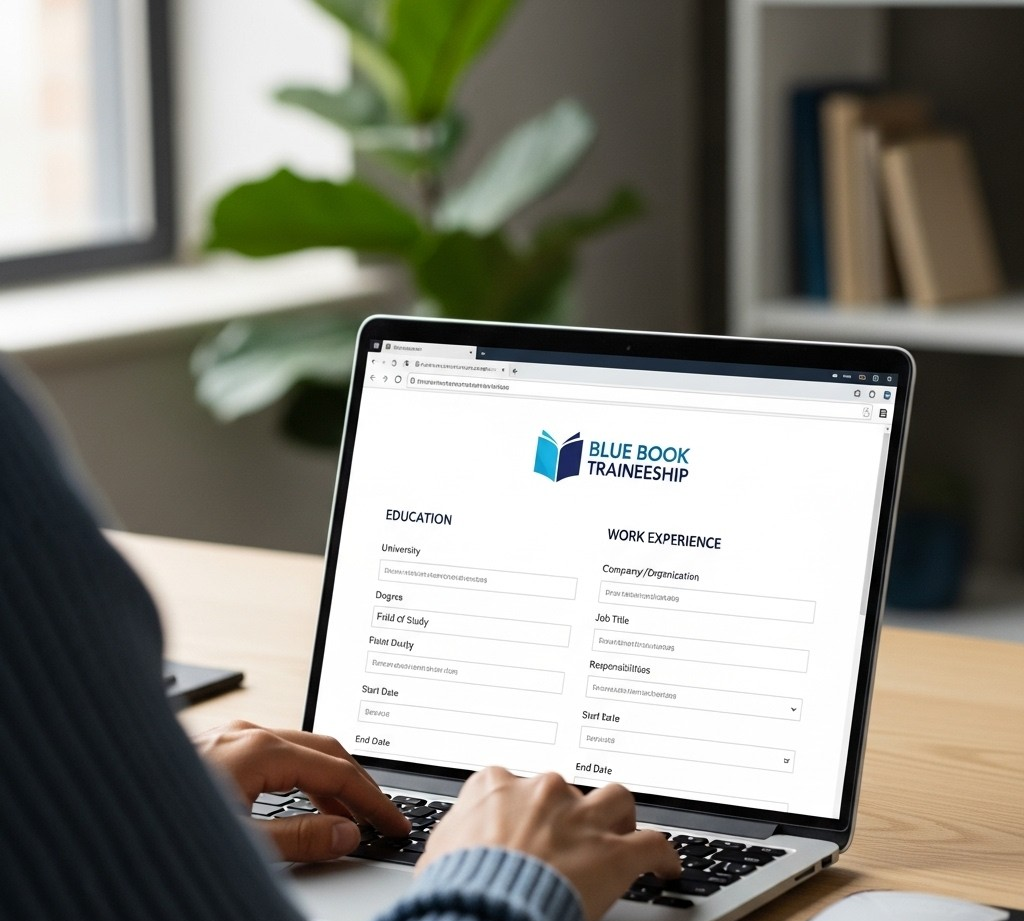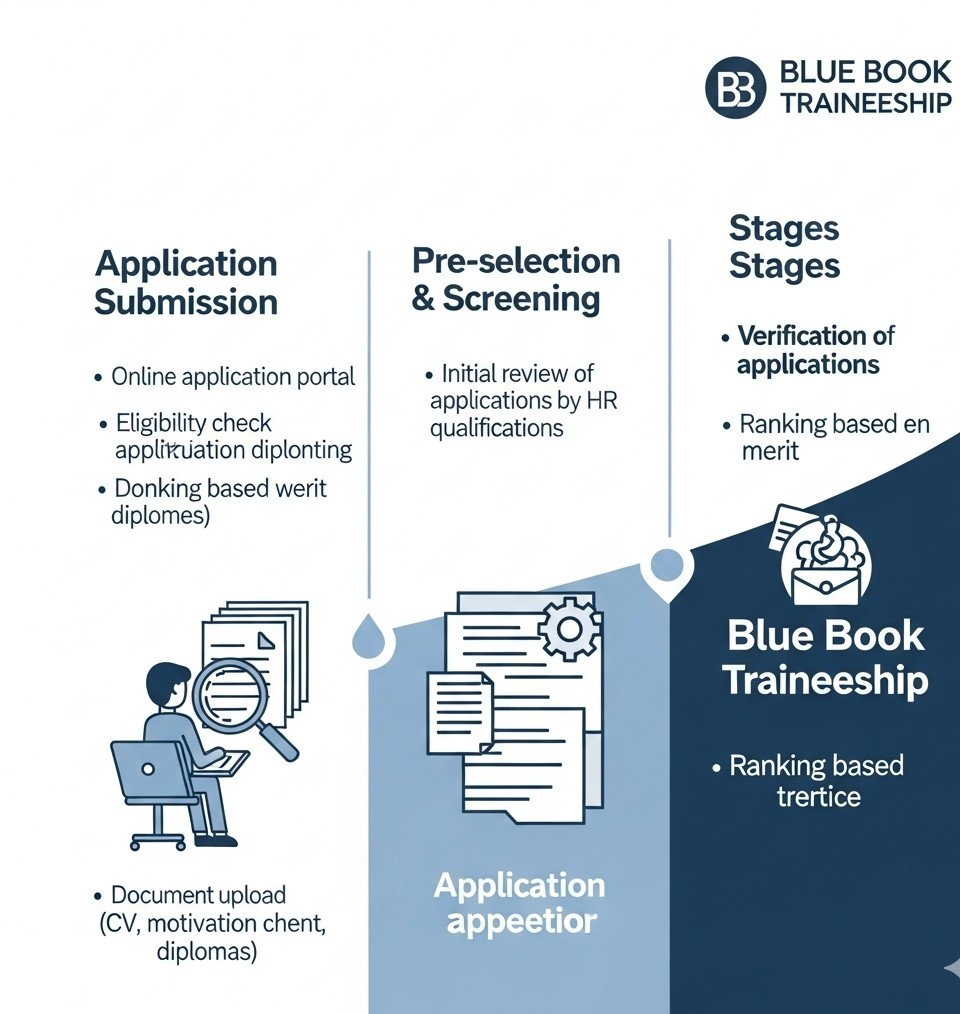Have you ever dreamt of contributing to the European project, gaining invaluable professional experience, and kickstarting a truly international career? The European Commission Blue Book Traineeship offers just that. For ambitious graduates around the globe, this prestigious program is a gateway to understanding the inner workings of the European Union, making it an unparalleled opportunity. As someone who has spent years advising aspiring professionals, I’ve seen firsthand how transformative this experience can be. This guide will walk you through everything you need to know to successfully navigate the application process for the March 2026 session, from understanding eligibility to crafting a compelling application.

What is the Blue Book Traineeship? Your Gateway to the EU
The European Commission’s Blue Book Traineeship is a five-month paid internship program offered twice a year. It’s designed for university graduates from around the world who are eager to gain practical experience in the EU institutions. Trainees work across various departments, known as Directorates-General (DGs) and services, covering a vast array of policy areas, from climate action and digital strategy to international relations and economic affairs.
The program is more than just an internship; it’s an immersive experience that provides a deep dive into EU policies and daily operations. You’ll work alongside EU officials, contribute to significant projects, and gain a unique perspective on European governance. It’s an incredible opportunity to develop professional skills, expand your network, and build a foundation for a future career in European affairs or international relations.
Eligibility Criteria: Do You Qualify?
Understanding the eligibility requirements is the first crucial step in your application journey. The European Commission maintains strict criteria to ensure a fair and competitive selection process for the European Commission Blue Book Traineeship.
To be eligible for the March 2026 session, you must meet the following fundamental conditions, as outlined by the Official European Commission Traineeship Page.
- Academic Qualification: You must have completed a full university degree cycle (at least 3 years of study, corresponding to a Bachelor’s degree) by the application deadline. Diplomas must be recognized in an EU member state.
- Language Skills: This is often a significant hurdle for many. You must demonstrate a very good knowledge of two official EU languages.
- One must be English, French, or German (level C1 or C2 according to the Common European Framework of Reference for Languages – CEFR).
- The second must be a different official EU language (level B2 or C1). Native speakers are generally exempt from providing proof for their mother tongue.
- Previous Experience: You must not have had any prior in-service training or paid work experience exceeding 6 weeks within any European institution, body, or agency. This rule is strictly enforced to ensure the traineeship offers a genuine first experience within the EU bubble.
- Age: While there isn’t a strict age limit, the program is primarily aimed at recent graduates.
- Citizenship: The majority of traineeship places are allocated to EU citizens. However, a limited number of places (typically around 15-20%) are reserved for non-EU citizens. This means competition for non-EU applicants is exceptionally high.
The Application Process: A Step-by-Step Guide
The application for the European Commission Blue Book Traineeship is a multi-stage process that demands attention to detail and thorough preparation. Here’s a breakdown to help you navigate it successfully:
1. Online Application Form: Your First Impression
The journey begins with the online application form, typically opened several months before the traineeship start date. For the March 2026 session, keep an eye on the official EU traineeship portal in mid-2025.
- Personal Details: Fill this out accurately. Double-check names, dates, and contact information.
- Education & Qualifications: List all your university degrees, including dates, institutions, and grades. Upload scanned copies of your diplomas and transcripts.
- Professional Experience: Detail any relevant work experience, internships, or volunteer work. Highlight skills gained that are pertinent to an EU role.
- Language Skills: This is critical. Self-assess your language levels according to the CEFR and be prepared to provide certificates (e.g., IELTS, TOEFL, DELF, Goethe-Zertifikat) if requested, especially for non-native speakers of English, French, or German.
- Motivation and Interests: This is your chance to shine! You’ll be asked to provide a concise statement of motivation and outline your areas of interest within the European Commission. Tailor this section to specific DGs or policy areas that genuinely excite you. Researching the Commission’s priorities and recent work will be incredibly beneficial here.

2. Crafting a Winning Motivation Letter and CV
While the online form is structured, your CV and motivation letter are where your personality and passion can truly stand out.
- Curriculum Vitae (CV):
- Use the Europass CV format. It’s the standard for EU institutions and ensures all necessary information is presented clearly.
- Highlight relevant skills: analytical thinking, research, communication, teamwork, project management, and digital literacy.
- Quantify achievements where possible (e.g., “managed a project team of 5,” “researched and drafted 10 policy briefs”).
- Keep it concise, ideally two pages maximum.
- Motivation Letter: This is perhaps the most critical component.
- Be Specific: Don’t write a generic letter. Research specific DGs or policy areas you are interested in. Explain why you are interested in their work and how your skills and experience align.
- Show, Don’t Just Tell: Instead of saying “I have strong analytical skills,” give an example of a project where you applied those skills.
- Connect to EU Values: Demonstrate an understanding of the European Union’s goals and values. How do you see yourself contributing to the European project?
- Proofread Meticulously: A single typo can undermine your credibility. Get a fresh pair of eyes to review your letter.
Enhancing Your Application: Beyond the Basics
To truly stand out among thousands of applicants, consider these additional tips:
Internships and Volunteering: Practical Experience Matters
Any relevant experience that demonstrates your skills and commitment will bolster your application for the European Commission Blue Book Traineeship. This includes:
- Previous Internships: Especially in government, NGOs, international organizations, or research institutions.
- Volunteer Work: Shows initiative, teamwork, and commitment to a cause.
- Student Associations: Leadership roles or active participation demonstrate organizational and interpersonal skills.
Language Proficiency: A Key Differentiator
As mentioned, language skills are paramount. If you have proficiency in more than two EU languages, it can significantly boost your application, particularly if those languages are less commonly spoken but strategically important to the EU (e.g., those from accession countries). Consider taking additional language courses or certification exams to strengthen this aspect of your profile.
The “Blue Book” Stage: What Happens After Application?
Once you submit your application, it enters the “Blue Book” stage. This involves:
- Pre-selection: Your application is screened against the basic eligibility criteria.
- Scoring: Eligible applications are scored based on academic merit, language skills, relevant experience, and motivation.
- Blue Book List: The highest-scoring candidates are placed on the “Blue Book” list, which is essentially a database of pre-selected candidates. Being on this list does not guarantee a traineeship, but it means you are available for selection by the DGs.
- Selection by DGs: Individual Directorates-General and services within the Commission review the Blue Book list and select candidates whose profiles best match their needs. This is often where networking and a highly tailored motivation letter can pay off, as DGs look for specific skill sets and interests.<br>The European Commission often shares insights into the selection process and trainee experiences on its social media. This can offer valuable perspectives.

Life as a Trainee: What to Expect
If selected for the European Commission Blue Book Traineeship, you’ll be based primarily in Brussels or Luxembourg. The five months will be intense, rewarding, and incredibly enriching.
- Work Environment: You’ll be assigned to a specific unit within a DG or service. Your tasks could range from drafting reports, conducting research, organizing meetings, contributing to policy development, or assisting with communication campaigns.
- Learning & Development: The Commission offers a wide array of training opportunities, seminars, and networking events for trainees. This is your chance to learn from experts and delve deeper into areas of interest.
- Networking: You’ll meet fellow trainees from diverse backgrounds, EU officials, and professionals from various fields. These connections can be invaluable for your future career.
- Financial Support: Trainees receive a monthly grant, which is intended to cover living expenses in Brussels or Luxembourg. For the March 2026 session, refer to the European Commission’s traineeship page for current grant amounts and conditions.
A Comprehensive Guide to the Free State of Bavaria One Year Scholarships 2026
Unlocking Your Potential: A Guide to the Martingale Foundation Scholarships 2026
FAQ
Q1:What are the key deadlines for the March 2026 Blue Book Traineeship?
Application deadlines are typically in late summer/early autumn of the year preceding the traineeship start. For the March 2026 session, expect the application window to open around July-August 2025 and close around September-October 2025. Always consult the official EU Traineeship portal for the precise dates.
Q2:Can non-EU citizens apply for the Blue Book Traineeship?
Yes, a limited number of places are reserved for non-EU citizens, usually around 15-20% of the total intake. However, competition for these spots is extremely high.
Q3:How important are language skills for the European Commission Blue Book Traineeship?
Language skills are critically important. You must demonstrate proficiency in two official EU languages, with one being English, French, or German (C1/C2) and the second being a different official EU language (B2/C1). Strong language skills can be a significant advantage.
Q4:What kind of tasks can I expect as a Blue Book Trainee?
Tasks vary widely depending on the assigned Directorate-General (DG) or service. They can include research, drafting reports, organizing events, supporting communication campaigns, managing websites, and assisting with policy development.
Q5:Is the Blue Book Traineeship a paid opportunity?
Yes, trainees receive a monthly grant (allowance) from the European Commission to help cover living expenses. The exact amount is updated periodically and can be found on the official traineeship website.










